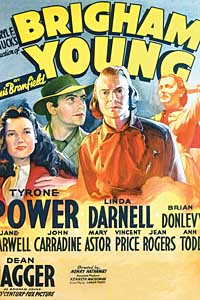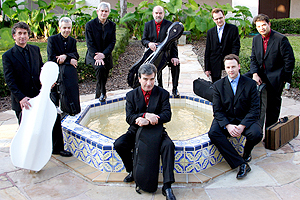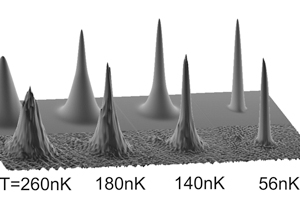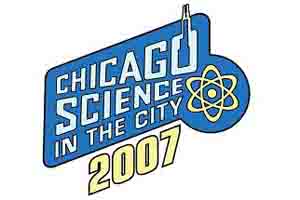October Highlights
 | |
Doc Films
Mormons! Pro, anti and absurdist Mormon cinema from 1905 to 2007
Through Thursday, Nov. 29
Doc Films’ celebration of Mormon cinema will showcase nine films throughout the fall, including tonight’s screenings of A Mormon Maid, A Trip to Salt Lake, a three-minute nickelodean flick, and Cipher in the Snow and Uncle Ben, two short, Brigham Young University films. (See calendar listings for times and dates of all movies being screened in this Doc Films series.) Mormon polygamy was front-page news from 1904 to 1907, when the Senate refused to seat polygamist Reed Smoot of Utah. The Church of Jesus Christ of Latter-day Saints issued a “second manifesto” on polygamy, which would decisively end plural marriage in the Latter-day Saints Church. Smoot won his Senate seat on a tide of unusual religious tolerance. In this environment, the first fiction film on Mormonism, A Trip to Salt Lake, was released. Mormon villainy was central to cinematic adaptations of pulp westerns and major studio films like A Mormon Maid. Anti-Mormon films became even more virulent and inflammatory overseas, with many of these films shot in Britain and featuring murderous Mormon elders and ungodly secret rites. The Hays Code certified the death of anti-Mormon melodramas by forbidding overt sexuality and anti-religious themes. Throughout the Great Depression, Mormons received national praise for their well-organized welfare programs, and Latter-day Saints Church members came to be seen as a hard-working and patriotic model minority. Twentieth-Century Fox sunk $2 million dollars into Brigham Young, perhaps the friendliest independent depiction of Mormons ever produced. The film sympathetically dramatizes the mob murder of Latter-day Saints prophet Joseph Smith (played by a young Vincent Price). Brigham Young (played by Dean Jagger) is a practical man who quotes the Constitution, preaches peace and humbly builds Salt Lake City with the help of miracles. These wholesome portrayals of Mormons continued through the 1950s. The Latter-day Saints Church recruited veteran Disney animator Wetzel Whitaker to start a film school at Brigham Young University, one of the nation’s first film programs. Whitaker was first charged with producing official films such as Man’s Search For Happiness, a proselytizing film. In the 1960s and 1970s, BYU produced miles of moralistic short films, including Uncle Ben and Cipher in the Snow. BYU’s film and drama programs provided raw talent for Mormon cinema, and trained mainstream storytellers from Neil LaBute to Jared Hess.
 | |
Chicago Presents
Academy of St. Martin in the Fields Chamber Ensemble
Kenneth Sillito, leader
7:30 p.m. Friday Oct. 5
Formed in 1967, the Academy of St. Martin in the Fields Chamber Ensemble was established with the intent of performing larger chamber works, ranging from quintets to octets. The ensemble possesses the advantage of a long history of playing together, which has contributed to the members’ acute awareness of one another’s musical styles and techniques. Kenneth Sillito has led the ensemble since 1980 and has contributed to its recording success, which includes the release of more than 30 CDs.
 | |
The Enrico Fermi Institute
Arthur Holly Compton Lectures
“Shining Light on Ultracold Atoms: Illuminating Complex Matter”
11 a.m. Saturdays through Dec. 8 (There will be no lecture Saturday, Nov. 24)
Room 106, 5720 S. Ellis Ave.
Nathan Gemelke, Research Associate and the Grainger Postdoctoral Fellow in the James Franck Institute, will deliver this fall’s Compton lectures on the topic of ultracold atoms. The weekly Saturday lecture series will provide a descriptive account of some of the frontiers of modern-day science. In these lectures, Gemelke will explain the ways in which better understanding of the atom is leading to new frontiers of a quantum mechanical world. Audience members are not required to have a background in science — just a strong sense of curiosity.
 | |
Chicago Science in the City
10 a.m.-noon, Saturday, Oct. 13
Claudia Cassidy Theater at the Chicago Cultural Center
77 E. Randolph St.
This two-week festival, which began Tuesday, Oct. 2, aims to entice Chicagoans of all ages to explore and experience science through demonstrations, presentations and hands-on activities at venues throughout the city. More than 85 events will take place, and University faculty members from the Biological, Physical and Social Sciences divisions will be participating, as will scientists from Argonne National Laboratory and Fermi National Accelerator Laboratory. Programs on Saturday, Oct. 13 and Sunday, Oct. 14 will be family-friendly explorations of how science and art intersect.
Dissecting Drama and Dance: the Science of Performance
Through Tuesday, Oct. 16
Presentations and performances will explore what physiology can explain about how the human body moves and how science plays a role in performance, including how neurology and psychology play roles in the practice of memorizing lines and movements. Presenters will include Sian Beilock, Assistant Professor of Psychology at the University.
Eureka! The Science of Discovery
2-4 p.m. Sunday, Oct. 14
833 N. Orleans St.
This program will explore the role physics plays in how humans view art, and it will tackle questions such as how do paleontologists and archaeologists use observation skills in the field? How do the mind and the body communicate when painting or exploring? Paul Sereno, Professor in Organismal Biology & Anatomy, and president and co-founder of Project Exploration; Gabrielle Lyon, co-founder and executive director of Project Exploration; and Heinrich Jaeger, Professor in Physics and the College, will participate in this presentation with students from Marwen, a non-profit organization that provides underserved children in the city of Chicago with art education. Both the Science of Performance and Eureka! The Science of Discovery events require reservations, which may be made by phoning (312) 422-5580 or sending e-mail to: ihc@prairie.org. More information also is available at http://www.prairie.org/ChicagoScience.
![[Chronicle]](/images/sidebar_header_oct06.gif)